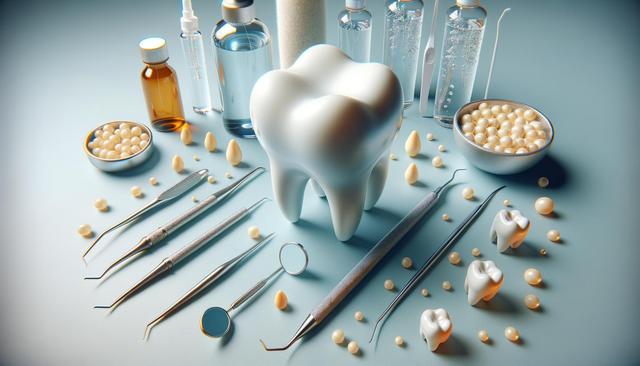Understanding the Role of a Dental Hygienist
Dental hygienists play a vital role in the overall health care system by focusing on preventive oral care. They work closely with dentists to help patients maintain healthy teeth and gums, primarily through cleanings, examinations, and patient education. A typical day for a dental hygienist might include removing plaque and tartar, applying sealants and fluoride treatments, and educating individuals on proper brushing and flossing techniques. Their work not only improves oral health but also contributes significantly to preventing other health conditions linked to poor dental hygiene, such as heart disease and diabetes.
The importance of dental hygienists extends beyond clinical tasks. They serve as educators and advocates for oral health, often forming long-term relationships with patients. This trust allows them to influence lifestyle choices that support better dental outcomes. As a result, the profession attracts individuals who are detail-oriented, compassionate, and enjoy working with people.
Why More Are Looking Into Dental Hygiene Programs
Over the past few years, there has been a noticeable increase in interest surrounding dental hygiene programs. Several factors contribute to this trend, including the growing awareness of oral health’s connection to overall wellness and the desire for career stability. Additionally, the healthcare sector continues to expand, offering numerous opportunities for skilled professionals in this area.
Many are drawn to dental hygiene programs because they offer a relatively short pathway to entering the workforce. Most programs can be completed in two to three years, making them an attractive option for those seeking a quicker route to a professional career. Other appealing factors include:
- Strong job prospects and growing demand for dental health professionals
- Opportunities for flexible work schedules
- Ability to work in a variety of settings, such as private practices, public health clinics, and educational institutions
- Competitive entry-level salaries
These aspects make dental hygiene a practical and fulfilling choice for individuals at various stages of their career journey.
The Educational Path and Program Requirements
Becoming a dental hygienist typically begins with enrolling in an accredited dental hygiene program. These programs are offered through community colleges, technical schools, and some universities. They usually result in an associate degree, although bachelor’s and master’s degree options are available for those looking to advance their careers or specialize further.
Program curricula generally include both classroom instruction and hands-on clinical experience. Students study subjects such as anatomy, periodontology, radiology, and pharmacology, while also gaining practical skills through supervised patient care. Admission requirements vary, but most programs expect applicants to have completed prerequisite coursework in areas like biology and chemistry.
After completing an accredited program, graduates must pass a national written examination and a regional or state clinical board examination to become licensed. Licensing requirements differ by location, so it’s essential for prospective students to research the specific regulations in their area.
Career Outlook and Professional Growth
The career outlook for dental hygienists remains promising, with continued growth expected in the coming years. As more people prioritize their health and access to dental care expands, the need for qualified dental hygienists is likely to increase. This demand contributes to job security and opens the door for various career pathways within the field.
Dental hygienists can pursue advancement through additional certifications, specialization in areas like pediatric or geriatric dentistry, or by moving into administrative or educational roles. Some may even choose to continue their education and become dental therapists or pursue roles in public health policy. This flexibility allows professionals to shape their careers in ways that align with their interests and goals.
The field also supports lifelong learning and professional development, with many organizations offering resources, continuing education, and networking opportunities. This ongoing growth not only enhances personal satisfaction but also improves patient care outcomes.
Is Dental Hygiene the Right Choice for You?
Choosing a career in dental hygiene involves considering personal interests, strengths, and long-term goals. Those who excel in this profession often enjoy direct patient interaction, have a strong attention to detail, and are committed to promoting health and wellness. The role combines technical skill, communication, and empathy—qualities that are essential for success and satisfaction in the job.
The profession also offers a degree of flexibility that appeals to many. Whether you’re a recent high school graduate, a career changer, or someone re-entering the workforce, dental hygiene provides a clear and achievable path to a meaningful career. With growing demand and a supportive professional community, it’s an appealing option for those looking to make a tangible difference in people’s lives.
Before enrolling in a program, it’s helpful to speak with practicing dental hygienists, visit schools, and explore job shadowing opportunities to gain firsthand insight into the profession. These steps can help ensure that the decision aligns with your personal aspirations and lifestyle needs.
Conclusion: A Promising Path in Healthcare
Dental hygiene is emerging as a popular and practical career choice for individuals seeking a role in the healthcare sector that offers stability, flexibility, and the opportunity to make a positive impact. With a manageable educational path, strong job prospects, and the potential for professional growth, it’s easy to see why more people are looking into dental hygiene programs. For those ready to enter a field that values both technical expertise and compassionate care, dental hygiene presents a rewarding and sustainable option.




Leave a Reply